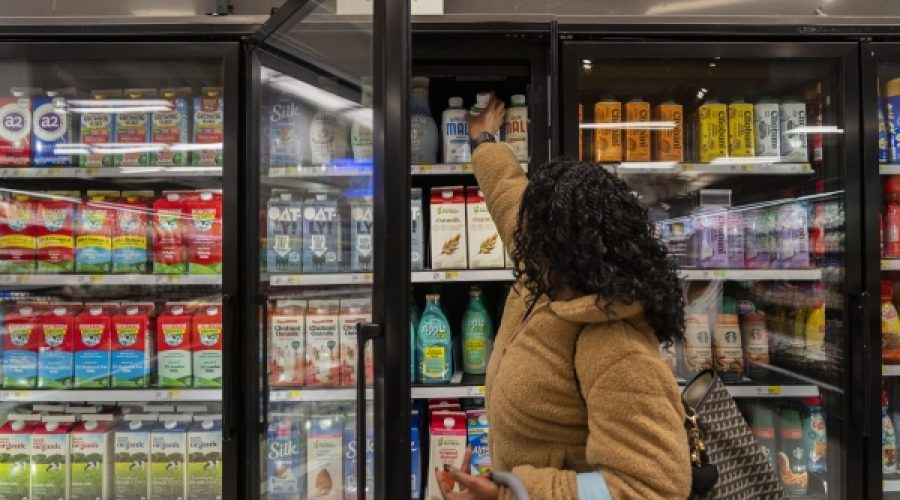Trump Lifts Food Tariffs: Implications for Omani Businesses and Consumer Prices
WASHINGTON — On Friday, the Trump administration announced a decision to lift tariffs on various foreign products, such as beef, tomatoes, bananas, and coffee, in an effort to ease the price pressures consumers have encountered since the implementation of global tariffs.
Effective from Thursday, the exemptions target certain “reciprocal” tariffs that President Donald Trump had imposed on foreign exports in April. This action marks a retreat from one of the president’s key policies — the sweeping tariffs that he has frequently adjusted over recent months, creating uncertainty for international businesses and trading partners.
The White House indicated that these tariffs were deemed unnecessary due to significant progress in trade negotiations, which include more than a dozen framework and final trade agreements, as well as investment agreements. Recently, the United States announced deals with countries such as Switzerland, Argentina, El Salvador, Guatemala, and Uruguay to expand market access for U.S. businesses.
However, the administration’s move appears to be influenced by rising concerns about consumer prices. Despite Trump’s campaign promise to lower grocery costs, ongoing inflation has negatively impacted his approval ratings, contributing to Democratic victories in recent elections across the country.
When asked if further tariff changes were forthcoming, Trump replied, “I don’t think it’ll be necessary. We just did a little bit of a rollback on some foods like coffee.”
In recent months, administration officials contemplated exempting items lacking substantial U.S. production, such as coffee and bananas, from tariffs, particularly for countries with trade agreements. However, many exemptions announced on Friday apply to all imposed reciprocal tariffs, not solely those linked to formal trade agreements. This list also includes various U.S.-produced goods, such as bread, beef, and orange juice.
Analysts suggested that the administration’s decision may implicitly acknowledge that tariffs have contributed to rising prices — a notion the administration has often disputed. Erica York, a vice president at the Tax Foundation, posed a rhetorical question on social media: “If lowering tariffs lowers prices, what does raising tariffs do to prices?”
Rep. Don Beyer, D-Va., remarked, “President Trump is finally admitting what we always knew: His tariffs are raising prices for the American people.”
In the days leading to this announcement, officials like Commerce Secretary Howard Lutnick advocated for more extensive exemptions to alleviate food inflation. However, not all administration officials agreed on the prudence of such broad exceptions.
By extending relief to both countries that have made concessions in trade deals and those that have not, the exemptions risk alienating some trading partners. Furthermore, tariff reductions could upset domestic producers who are vital to Trump’s support base, including ranchers and Florida tomato and orange growers.
Trump has faced criticism from cattle ranchers in recent weeks due to proposals for increasing beef imports to reduce prices, which they argue contradicts his “America first” approach.
The American Soybean Association expressed gratitude for the exemption of fertilizers used in soybean production, while other industry stakeholders criticized their exclusion from the exemptions.
Earlier Friday, the National Association of Manufacturers urged that manufacturing inputs and machinery for U.S. factories should not be subject to tariffs. Following the administration’s announcement, Chris Swonger, CEO of the Distilled Spirits Council, lamented that the exclusion of European and British spirits was “another blow to the U.S. hospitality industry,” noting that products like Scotch, cognac, and Irish whiskey are value-added agricultural items that cannot be produced domestically.
All of the reciprocal tariffs imposed by the president are currently under scrutiny in a case before the Supreme Court, with officials awaiting a ruling that could determine whether Trump overstepped legal authority in their implementation. The administration has stated it has alternate methods for imposing levies if necessary.
Tariffs have combined with other factors to moderately increase food prices recently. Certain products, such as beef and coffee, have seen significant price hikes, with coffee prices surging nearly 19% this year. Adverse weather has partly contributed to these increases, but tariffs of 50% on Brazilian imports and 20% on Vietnamese goods have further exacerbated the situation.
Although inflation in the U.S. remains elevated and has climbed again in recent months despite Federal Reserve efforts to curb it, the central bank is now shifting focus to maintaining labor market health following a noticeable slowdown in job growth.
While the Trump administration has argued that tariffs would boost domestic investment and production, creating jobs, many economists contend that these tariffs have led to higher prices and slowed economic growth by increasing costs for U.S. businesses.
This year, tariffs appear to have had a lesser impact on prices initially, as companies hesitated to transfer costs to consumers. However, more recent months have seen a greater share of costs passed on to consumers. Inflation for goods has risen, notably more so for products subject to tariffs compared to those without levies.
Karim Azzaoui, who represents Balsu USA, an importer of hazelnuts and cashews, stated that some commodities have surged in price to the point of being unaffordable for lower-income shoppers, citing olive oil as an example.
“Now that global prices are coming down, we tend to see that tariffs are artificially keeping prices high here,” Azzaoui commented. “We didn’t see a drop in prices at the grocery level, as an American buying olive oil to improve their diet will still be priced out of the market.”
This article originally appeared in The New York Times.
Special Analysis by Omanet | Navigate Oman’s Market
The recent lifting of tariffs on foreign products by the Trump administration signals potential cost reductions for businesses reliant on imports, particularly in food and beverage sectors, which could lead to enhanced competitiveness. However, this action also poses risks of market volatility, as domestic producers may be negatively impacted, leading to uncertainty in supply chains. Smart investors in Oman should consider strategic partnerships with international suppliers and stay attuned to shifting trade policies that could affect pricing and availability of key commodities.



